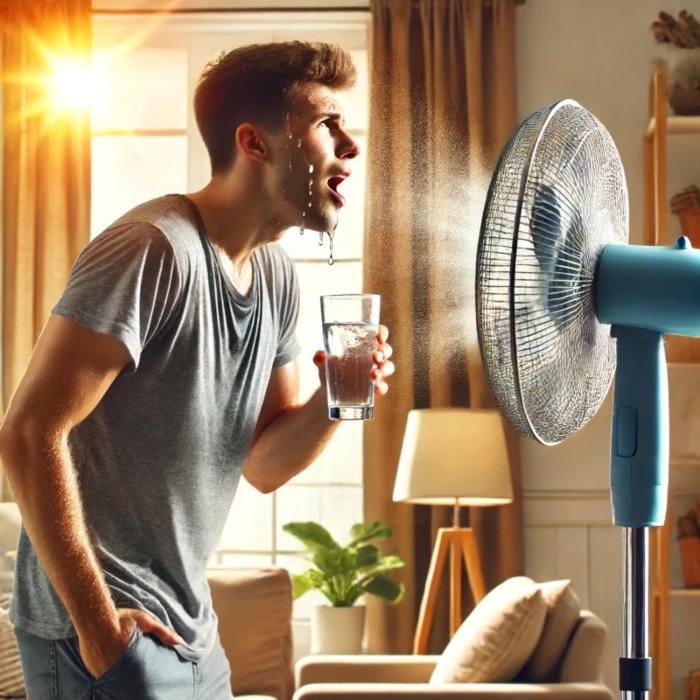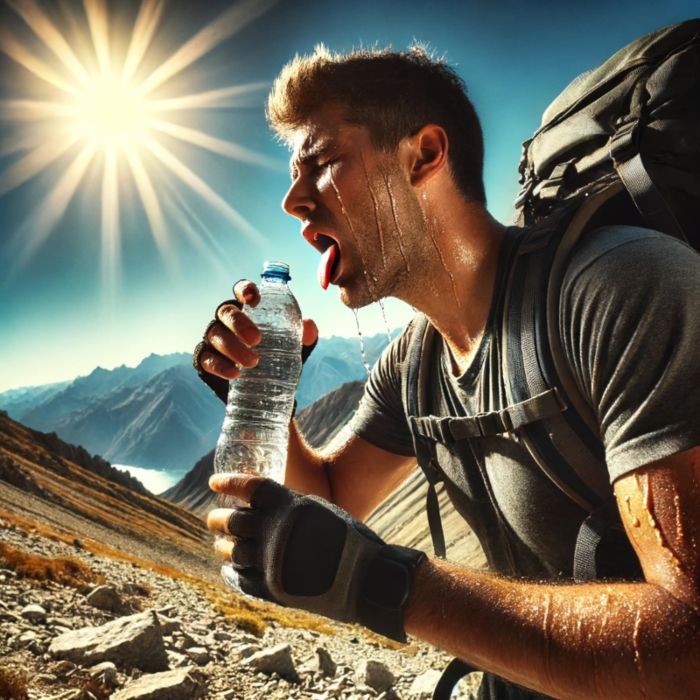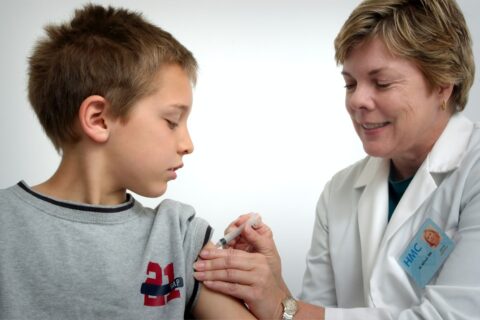Beating the Heat Stay Cool & Safe in El Paso’s Summer
Whether from my time as a military physician training for weeks on end in the Mojave Desert and my deployment to Iraq, to the many wonderful years practicing in the beautiful city of El Paso, one of the most significant enemies we all face is the danger of heat exposure. We are at the beginning of our hottest period of the year, and it is important to be mindful of the temperature along with the stages of illness that heat can produce. Heat related illness can affect anyone of any age, sex, and physical conditioning. It can progress very rapidly with initially subtle symptoms to seizures, loss of consciousness, organ failure, and subsequent death. There are many examples of the toll this syndrome can have from college football players to the elderly and tragic cases of children and pets left in hot cars. Our own experience in the emergency room has left us caring for the extremes of these presentations making it imperative to familiarize our population with this common but potentially lethal condition.
There are underlying factors placing us at higher risk for heat injury. Age, obesity, common medical conditions such as diabetes, high blood pressure, heart disease. Common medications many of us take daily such as antihistamines, blood pressure medication, cholesterol medications, opiates, alcohol as well as illicit drugs such as amphetamines and cocaine can intensify the effects of the summer temperatures on our well-being in our area. The following table is a partial list of some common examples of such medications.
|
Medication Class |
Examples | Effect on Heat Related Illness |
| Diuretics
(blood pressure medication) |
Furosemide,
Hydrochlorothiazide |
Increase urine output, leading to dehydration and reduced ability to regulate body temperature. |
| Beta-Blockers
(blood pressure medication) |
Metoprolol,
Atenolol |
Reduce blood flow to the skin, impairing heat dissipation and increasing the risk of heat-related illnesses. |
| Calcium Channel Blockers
(blood pressure medication) |
Amlodipine,
Verapamil |
Can cause dehydration and impair the body’s heat regulation mechanisms. |
| ACE Inhibitors
(blood pressure medication) |
Lisinopril, Enalapril | Can lead to dehydration and reduced ability to regulate body temperature, increasing the risk of heat-related illnesses. |
| Statins
(Cholesterol medication) |
Atorvastatin, Simvastatin | May cause muscle weakness and fatigue, which can contribute to heat intolerance and increased risk of heat-related illnesses during physical activity. |
| Antihistamines
(Allergy medication) |
Diphenhydramine
Ceterizine |
Can reduce sweating and impair the body’s ability to cool down, increasing the risk of heat-related illnesses. |

What to look out for?
Prolonged heat exposure. It is obvious when we have been outside working, playing, or exercising directly under the sun. However, some may forget to consider other hot environments such as working in a non-climate-controlled warehouse, garage, or attic during the warmest time of the day. Initial symptoms may go overlooked as they may be mild such as swelling of your hands and feet, mild heat rash, cramping. These are the beginning of a continuum of symptoms as failure to recognize and treat with oral fluids, work-rest cycles, and cooling in shade or air-conditioned rooms will result in more serious disease. With continued heat exposure without treatment, we will experience pallor, nausea, vomiting, headaches, increased pulse, lightheadedness, and fainting. The culmination is a heat stroke at which time the patient will have an altered level of consciousness meaning confusion, seizures, unconsciousness and/or unresponsiveness. This is the most extreme and can result in organ failure and death. This person requires emergency medical attention, call 911.
| Stage | Symptoms | Treatment |
| Heat Cramps
|
Painful muscle cramps, usually in the legs or abdomen, heavy sweating, swelling of hand and feet, rash | Move to a cool place, rest, drink water or sports drinks, gently stretch and massage affected muscles |
| Heat exhaustion | Heavy sweating, weakness, cold/pale/clammy skin, fast/weak pulse, nausea or vomiting, dizziness, headache, fainting. | Move to a cool place, loosen clothing, apply cool, wet cloths, sip water, seek medical attention if symptoms worsen or last more than an hour. |
| Heat Stroke | High body temperature (above 103°F or 39.4°C), hot/red/dry skin, rapid/strong pulse, possible unconsciousness | Call 911 immediately, move to a cooler environment, try to lower body temperature with cool cloths or a bath, do not give fluids if unconscious |

How to Avoid Heat injury Summer in El Paso, Texas
Stay hydrated. It is very important to drink plenty of fluids to stay hydrated. Drinking the right kinds of fluids is equally crucial. Drinking plenty of water and occasional electrolyte replacement solutions is important to supplement salts, potassium, sodium, and other elements important to cell function. Avoid sugary drinks like soda, juice, and minimize alcohol consumption as these can dehydrate you or make you less responsive to the heat.
Wear loose, lightweight clothing along with wide brim hats. We are also concerned with the heat related skin conditions. We must protect against sun burns as those can be immediately uncomfortable and result in significant pain. However, the sun can result in skin changes that are the precursors to skin cancer or skin cancer itself. In terms of our attire, cotton, linen, silk and rayon are light, breathable fabrics that help in keeping you cool and comfortable through these sweltering days.
Stay in the shade. Avoid prolonged periods directly in the sun. Particularly if you are working, assure that you and your coworkers have an adequate cool, shady place to escape the heat throughout the course of your work day or while enjoying outdoor activities. If anyone begins to show the initial symptoms of heat exposure, place them in the shade, allow them to rest, apply cold compresses to their neck, armpits, and cool water over their heads if they are conscious. This will likely prevent progression to the worse stages of a heat injury.
Work rest cycles: Again, rest in the shade at least once an hour. During this time, make sure to hydrate and assess how you are feeling. With these periods to cool down and hydrate, you should be able to continue strong through your workday or vacation this summer.
Avoid strenuous activity. If you must exercise, do so early in the morning or late in the evening when it’s cooler. If your job allows, tailor your schedule to avoid the peak hours of heat. Start your day earlier in the morning. Exercise and other outdoor activities either earlier in the day or later in the afternoon. Wear the appropriate clothing and sunscreen during these times and carry a source of hydration with you throughout this strenuous events.
Listen to your body. If you start to feel overheated, stop what you’re doing and cool down. If you have to do your job during these hottest parts of the day, make sure you have a friend or coworker with you and you are both checking on each other. As another reminder, these conditions can be subtle and progress rapidly without enough of a warning to allow one to care for themselves. The summer months provide some of the best activities, experiences, and memories with our family and friends. With awareness and preparation, we can have fun and protect ourselves and our loved ones from becoming victims of the summer climate. We should keep our neighbors, particularly the elderly, our pets, and our coworkers in mind, follow these tips, and stay safe in the summer heat in El Paso. As always, your doctors and staff at El Paso Emergency and El Paso West Emergency room are always here for your medical needs.
- Jose Abraham Lopez, MD



